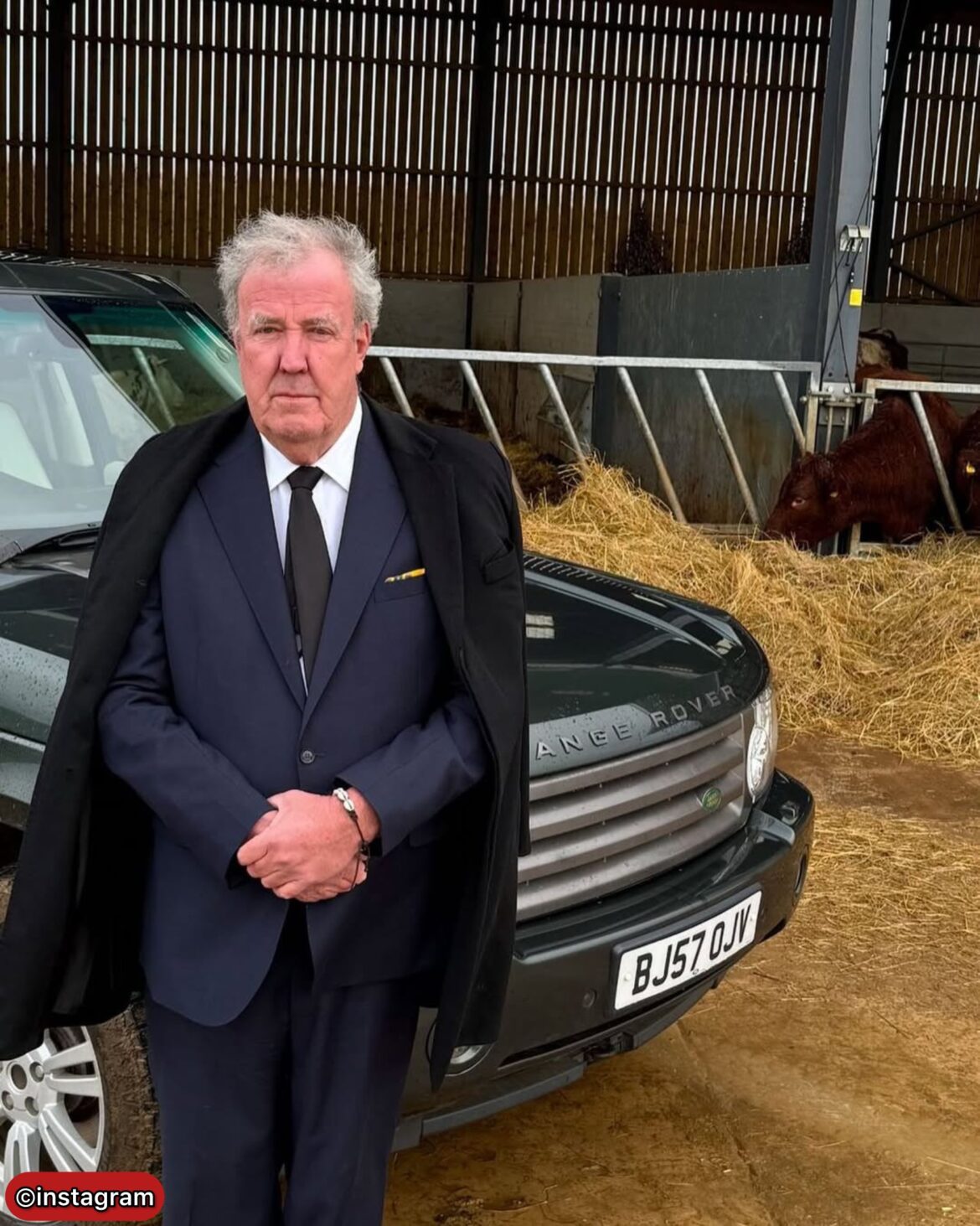Former Top Gear host questions why Beeb calls Dutch politician Wilders ‘far-right’ but won’t label Starmer ‘far-left’ in scathing column
Jeremy Clarkson has launched a blistering attack on the BBC over its coverage of Dutch politician Geert Wilders, accusing the broadcaster of double standards in its political labelling.
The 65-year-old former Top Gear presenter took aim at the BBC’s description of Wilders’ Party for Freedom as “far-right,” arguing the Dutch leader is “a long way from Hitler” and questioning why similar terminology isn’t applied to British politicians on the left.
Writing in his column for The Sun, Clarkson expressed his frustration at what he sees as the BBC’s biased political coverage, particularly after the broadcaster reported on the collapse of the Dutch government following Wilders’ withdrawal from the ruling coalition.
‘Confused by the Beeb’
“The BBC told us this week that because Geert Wilders, the far-right leader of a party in the Netherlands, had left the ruling coalition, the government was in disarray,” Clarkson wrote in his typically provocative style.
The TV star didn’t hold back in his assessment of the BBC’s political terminology: “I’m always confused by the Beeb’s idea of ‘far right’ because I’ve looked into the man and he’s a long way from Hitler.
According to Clarkson, Wilders’ political positions are far more mainstream than the BBC suggests: “He just wants a firm stance on immigration and an end to what he calls the ‘Muslimification’ of his country.
The Starmer Comparison
In a pointed jab at what he perceives as media bias, Clarkson drew a direct comparison between how Wilders is portrayed versus the treatment of Labour Prime Minister Keir Starmer.
In short, he’s about as far to the right as Starmer is to the left. So how come the BBC never refers to our Prime Minister as ‘far left’?” the Grand Tour star concluded.
This isn’t the first time Clarkson has taken aim at what he sees as political bias in media coverage. The presenter has become increasingly vocal about British politics, particularly regarding issues affecting farmers and rural communities.
Dutch Government Crisis
Clarkson’s comments come as the Dutch government collapsed after anti-Muslim politician Geert Wilders quit the right-wing coalition on Tuesday, accusing other parties of failing to back his tougher immigration policies.
Wilders had demanded immediate support for a 10-point plan that included closing the borders to asylum seekers, sending back refugees from Syria, shutting down asylum shelters, and expelling migrants convicted of serious crimes.
Prime Minister Dick Schoof, an independent, accused Wilders of irresponsibility, while other coalition parties denied failing to support him, saying they had been awaiting proposals from his PVV party’s own migration minister.
Pattern of BBC Criticism
Clarkson’s attack on the BBC is part of a broader pattern of criticism he has leveled at both the broadcaster and the current Labour government. In previous columns, he has accused the BBC and Starmer of using inflammatory rhetoric when describing political opponents.
Last year, during riots across Britain, Clarkson urged both Starmer and the BBC to “calm down” with labeling protesters as “far-right,” warning that such language was “p***ing off” millions of regular Britons.
I therefore suggest that both he and his friends at the BBC calm down the rhetoric or we could be heading for some real trouble,” he wrote at the time.
Clarkson vs Starmer
The TV presenter has been particularly scathing about Prime Minister Starmer, whom he has repeatedly called an “imbecile” and even claimed he would “rather have Putin in power” than the current PM.
In various columns, Clarkson has labeled Starmer a “Marxist” who believes “those who work hard are duty-bound to pay for those who won’t work at all.”
Much of Clarkson’s ire stems from Labour’s controversial inheritance tax changes affecting farmers, which he has described as “ethnically cleansing” the countryside and waging “all-out war” on rural Britain.
Military Mockery
Elsewhere in the same column, Clarkson mocked Starmer’s plans to bolster the UK’s military capabilities in response to global threats, particularly from Russia.
Drawing a historical parallel to Neville Chamberlain, Clarkson wrote: “According to Starmer, we’d go from a country that can’t even stop a rubber dinghy reaching the shores of Kent to a country that would shake fear into the entire Russian naval machine.
Britain in Decline
The presenter has also been vocal about what he sees as Britain’s general decline, particularly in London. Last month, he stated Britain had “fallen off a cliff to rock bottom.”
“London’s really suffering I think. You see streets and think, ‘God, this was thriving not that long ago’; now it’s all boarded up or charity shops,” he told The Telegraph.
He blamed “socialism” for the deterioration and expressed concerns about rising crime rates: “As you walk around, for the first time, in all of London, you’re conscious about not being on your phone. It’s a big change.”
The Wilders Context
Geert Wilders, 61, has been a fixture in Dutch politics for decades and a controversial figure due to his anti-immigration and anti-Muslim views. He was convicted of discrimination against Moroccans in 2016 and has been under police protection since 2004 due to death threats.
His Party for Freedom scored a shocking first-place finish in the 2023 parliamentary elections but he was unable to become prime minister due to resistance from other conservative parties given his controversial views.
The collapse of the Dutch government means the Netherlands will have a caretaker administration when it hosts a summit of NATO leaders later this month, adding to the political turmoil in Europe as far-right parties gain ground across the continent.
Clarkson’s defense of Wilders and attack on the BBC’s coverage is likely to reignite debates about media bias and the use of political labels in journalism, particularly as populist movements continue to challenge established parties across Europe.



